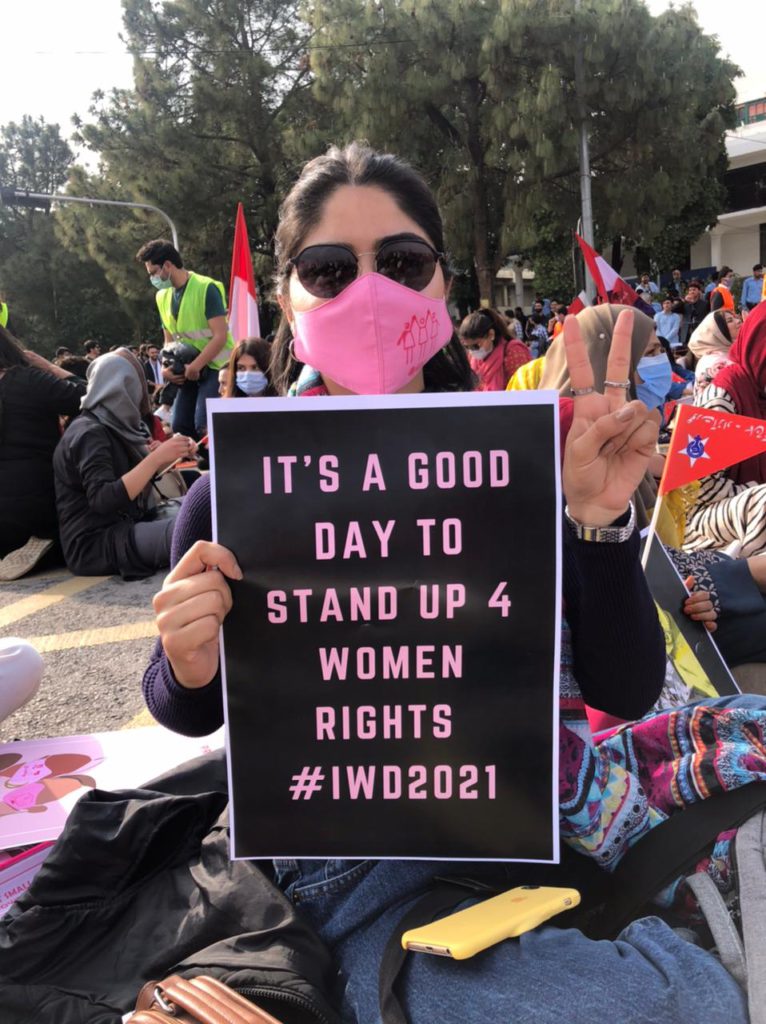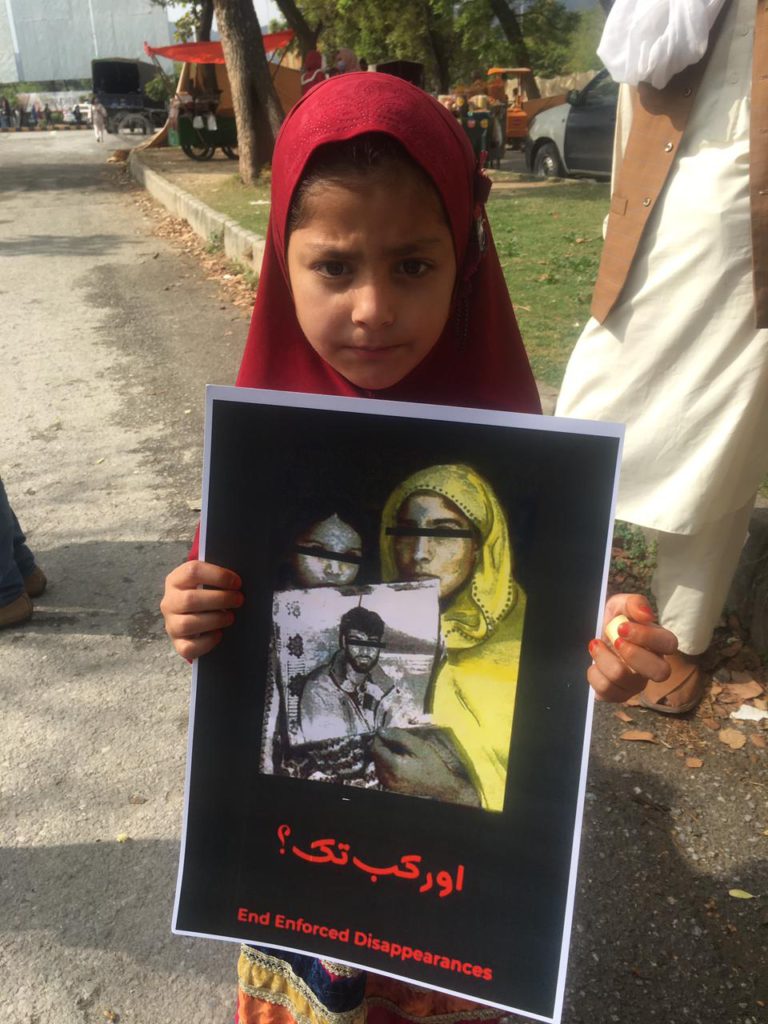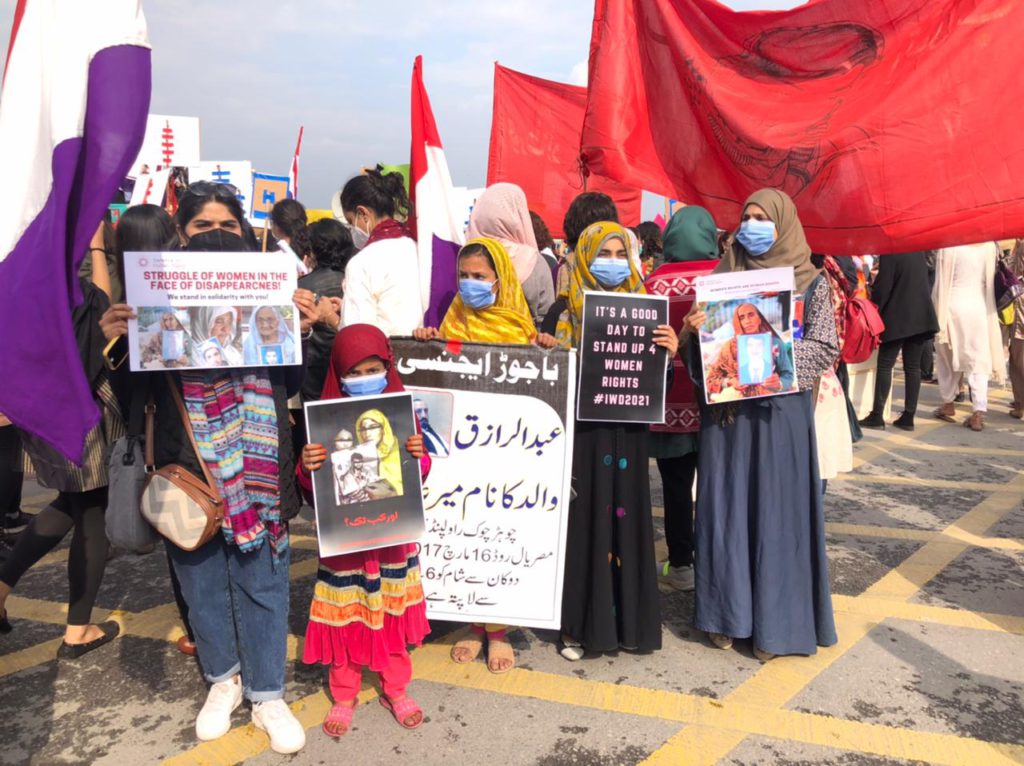Press Release
International Women’s Day is a global day observed on 8th March to celebrate the social, economic, cultural, and political achievements of women without regard to divisions, whether national, ethnic, linguistic, cultural, economic, or political; while also making a call to action for strengthening gender equality and accelerating women’s empowerment. Since those early years, International Women’s Day has assumed a new global dimension for women in developed and developing countries alike. The growing international women’s movement, which has been strengthened by four global United Nations women’s conferences, has helped make the commemoration a rallying point to build support for women’s rights and participation in the political and economic arenas.

Women’s Day is generally marked to highlight different women’s rights issues observed all over the world. This year, Defence of Human Rights Pakistan aims to highlight the struggle and issues of women in the face of enforced disappearances. Enforced disappearance is perhaps the worst form of human rights violation that affects not only the person who disappeared but also his/her entire family. Everyone working around the issue of enforced disappearance agrees that an overwhelming majority of persons who have disappeared are men, very often leaving behind women in the family to deal with the numerous consequences.
Enforced disappearance brings with it an array of problems that the family has to deal with – financial, social, psychological, and legal. The burden of dealing with these issues falls upon the women. In addition to the tireless search for the whereabouts of the disappeared, women are in a constant battle for survival in a generally patriarchal society. Shouldering the economic responsibility of the family is one of the biggest challenges that women face, especially since fending for the family is essentially considered as the male domain in conventional societies. Apart from this, women become responsible for the psychological health of the rest of the family members who are dealing with the loss of beloved kin and harboring hope of his surfacing. The struggle for truth and justice is long and tiring. Threats and intimidation to women seeking answers about the fate of their loved ones are common.

According to the research conducted by Defence of Human Rights Pakistan, 98% of the women feel insecure without their husbands and 90% of women face psychological stress. The stress is mainly due to economic and emotional issues they struggle within the face of the disappearances which usually results in miserable financial situations like disruption in the education of the children or sometimes not being able to provide food for the children. The study showed that overall women were left behind to go through devastating situations in the face of disappearances.
The case of Afnan, who belongs to KPK, is one of the many examples that went through various difficulties in the face of the disappearances. After the disappearance of Afnan’s husband, Abdul Aziz, she faced severe financial, psychological, and social issues. In order to provide education to her children, she and her children had to live in a tent on the veranda of a relative. Moreover, a person, who claimed to be from a secret agency, tried taking advantage of her dire financial situation; demanding some reward when he told her about her husband’s whereabouts. This entire situation just made her feel insecure and helpless. This is the story of thousands of women who have lost their husbands, brothers, and fathers in the name of disappearance.

In relation to the case of disappearances, DHR has registered 2797 enforced disappeared persons across Pakistan. This issue is not just restricted to Pakistan; Bangladesh, India, Indonesia, the Philippines, etc. have increasing and ongoing cases of disappearances. In order to prevent and respond to all forms of gender-based violence related to enforced disappearances, states should develop national programs and procedures, based on a holistic and multi-disciplinary approach. These should include the adoption of relevant legislation, provision of financial resources and establishment of national machinery addressing discrimination and promoting women’s rights, equality and empowerment.
States must not only adopt protective measures but should also take affirmative action in all spheres in order to strengthen women’s effective and equal participation in the prevention and eradication of enforced disappearances. These measures should primarily be aimed at removing institutional barriers that prevent women victims of enforced disappearances from enjoying their human rights fully and equally and on the same basis as men. Those measures should also ensure equality in reporting of enforced disappearance and guarantee that reports shall not be treated differently in light of the sex of the reporting person.
Defence of Human Rights, being a member organization of the Asian Federation Against Involuntary & Enforced Disappearances AFAD, shows it’s solidarity with all the female relatives of the victims of enforced disappearances and their families across the world. DHR pays a tribute to all women this particular day who are struggling to find their loved ones.
Media Team
Defence of Human Rights Pakistan

